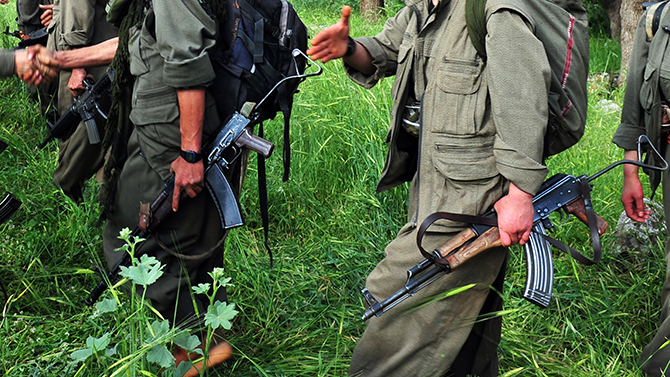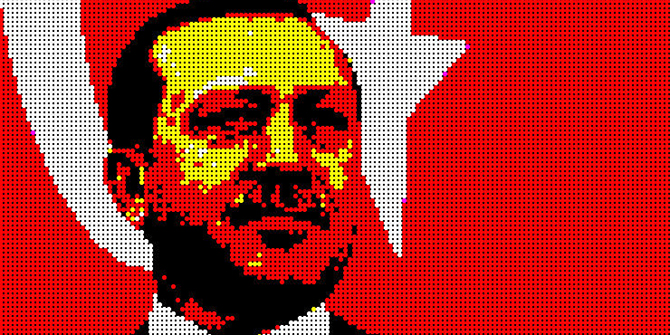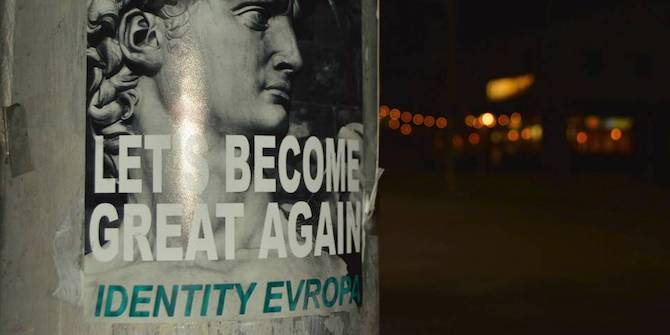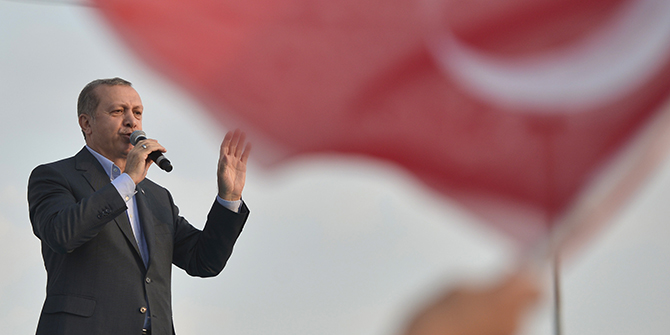by Nicola Degli Esposti

Since the summer of 2015, Turkey has been the victim of a wave of violent attacks perpetrated by both Islamists and separatist Kurdish groups. The beginning of this period of violence coincided with the collapse of the peace process between Ankara and the Kurdistan Workers’ Party (PKK) and the resumption of their 30-year-old conflict. Within this context of violence and creeping civil war, another Kurdish faction, the Kurdistan Freedom Falcons (TAK), has made its comeback. The TAK claimed responsibility for a series of major attacks against Turkish civilians and security forces throughout 2016, attracting the attention of the media and generating a great deal of confusion on the nature of its relationship with the PKK. International media outlets have been so far unable to distinguish between the two groups, which reinforces Ankara’s position that the TAK is a mere extension of the PKK.
The TAK emerged in 2005 when the PKK had withdrawn from Turkey and was licking its wounds in sanctuaries in Northern Iraq, while its leader Öcalan was calling for a political solution to the Kurdish conflict. The TAK took advantage of the PKK’s troubles, offering an alternative, more violent platform to the most radicalised fringe of the Kurdish youth. Between 2005 and 2011 the TAK was actively involved in attacks against Turkish civilians and security forces, with a significant preference for the non-Kurdish West of the country. This inclination led some to regard the TAK as an urban and youth branch of the PKK. However, the two organisations deny these ties and the TAK has criticised the ‘soft line’ of the PKK, rejecting any peaceful solution of the Kurdish issue in Turkey.
Since the TAK re-emerged in 2015, the pro-government press in Turkey has blamed the PKK for all attacks claimed by the TAK, refusing to distinguish between the two organisations. After the Ankara bombing of February 2016, the government described the TAK’s claim as a way to ‘shift the blame’ and accused PKK-affiliated Syrian Kurds. The TAK’s bombings in Istanbul and Kayseri in December 2016 became a new opportunity to arrest hundreds of Kurdish activists and politicians, accusing them of ties to the terrorists. The ease with which Ankara has been putting militant groups of very different kinds in the same ‘terrorist basket’ makes it an unreliable source of information for those interested in the issue. The international media keeps reproducing this ambiguity, with some calling the TAK an affiliate or proxy and some others a splinter of the PKK. This confusion is the result of the lack of clear information on the real nature of this relationship, over which experts and analysts are divided and generally very cautious.
Given the secretive nature and the very limited size of the TAK, information on the internal and external dynamics of the group is not readily available. The PKK has denied any relationship with the TAK on several occasions and the senior PKK commander, Cemal Bayık, has accused the Turkish state of manipulating the TAK in order to delegitimise the PKK. Beyond allegations of Turkish complicity, this argument does stress an important point that the international image of the PKK has been heavily damaged by the TAK’s indiscriminate attacks.
Aliza Marcus, a journalist who has followed the PKK for a long time, believes in the existence of ties between the two groups, confirming this opinion in a tweet on 12 December 2016. In a conversation with reporter Frederike Geerdink, Marcus explained that the PKK has never allowed other organisations to operate in its ‘field’. In the absence of clear evidence, this seems to be the strongest argument in favour of the existence of the ties between the PKK and the TAK. Over the decades, Öcalan’s followers have tended to violently annihilate all the competitors and successfully claimed the monopoly over the Kurdish national movement in Turkey. But, on the other hand, the TAK was established in the early 2000s, when the PKK was extremely weak and on the brink of disappearing. Al Monitor’s correspondent Metin Gurcan describes the TAK as a proxy organisation used by the PKK to carry out bloody attacks without tarnishing its international image. This hypothesis, however, clashes with the fact that the PKK is still receiving most of the blame for these attacks. If the TAK is just a cover for the PKK, the tactic is clearly not working.
With the limited information available, only careful observations can be made by looking at the behaviours and tactics employed by the two groups. Direct negotiations between the PKK and the Turkish government in 2012 brought about a ceasefire that lasted for two and a half years. Conversely, the TAK has never shown any interest in a political solution. Its actions have only raised the level of tension, radicalised the conflict and widened the division within Turkish society. Their indiscriminate violence has helped gather popular support for the government’s crackdown against Kurdish organisations and politicians accused of terrorist activities. It is hard to see how the PKK could benefit from actions that are tearing off its roots within Turkish society and tarnishing its image abroad. Regardless the existence of ties between the two groups, the Kurdish national movement in Turkey is now a much wider and diverse universe than it was in the 1990s. Distinguishing among its various components – and especially their strategies and tactics – is not only a matter of intellectual honesty for analysts and journalists but also the only way to keep the door open to a future political solution.
Nicola Degli Esposti is a first-year doctoral student at the department of International Relations of the LSE where he works on the transformation of the Kurdish transnational movement. He previously studied History and Middle Eastern Studies in Bologna, Leiden and Ankara. For his Master’s thesis, he studied the relationship between Turkey and the Kurdistan Regional Government of Iraq and presented his research in Istanbul and Erbil.







1 Comments